This op-ed was originally published by Project Syndicate.
Argentina was one of the world’s richest economies in the first few decades of the twentieth century, but subsequently became a cautionary tale of how a wealthy country can lose its way. By peddling policies that bring about short-term highs at a huge long-run cost, U.S. President Donald Trump risks taking America down a similar path.
There is a growing belief that the United States is heading for a recession, possibly before the 2020 presidential election. Current economic data and statistical trends indicate that many parts of the US economy are apparently under strain. It is not evident to me, however, that a recession is around the corner. In fact, the real danger for America is more serious, and is best described as the “Argentina risk.”
During the first few decades of the twentieth century, Argentina was one of the world’s fastest-growing economies. It also had talent flowing in, with more immigrants per capita than virtually any other country. As a result, Argentina was among the world’s ten richest countries, ahead of Germany and France.
That all changed in 1930, with a military coup led by Lieutenant General José Félix Uriburu. Over the next few years, amid rising right-wing hyper-nationalism, immigration stalled and tariff wars began. Between 1930 and 1933, the country almost doubled its average import tariff. What followed was not so much a recession as a slow-motion slowdown, the scars of which are visible even today. Argentina thus became a cautionary tale of how a wealthy country can lose its way.
The American economy remains globally dominant. But we have not, in recent times, seen the US as polarized and bitter as it is today. Watching this downward spiral, my mind drifts back a quarter-century, to 1994, when I moved with my family from India to the US. My wife and I worried about how we would fit into a new society and alien culture, and whether our children would be accepted in their new schools.
The reassurance came early. New and eager to explore, we saw an announcement for a music festival in the local newspaper and dashed off to downtown Ithaca to join in. It soon became clear that we had made a mistake: This was basically a gathering for gay couples. We stood out like sore thumbs – Grant Wood’s Indian Gothic – father, mother, son, and daughter. There was no way to pretend we were like everybody else. But we got a surprise. Seeing our visible awkwardness, people came up to us, laughing, joking, and chatting with the children. It was wonderful to realize that we were in an open, tolerant society.
So, what has happened to America since then? At the level of individual behavior, nothing. The country is just the same: open, civil, and polite. You see this when chatting with Uber drivers, cafe waiters, and roadside vendors – not to mention on National Public Radio, where when you ask a bad question, you are told, “That’s a great question,” and when you give a bad answer, “That’s fantastic.” Clearly, Americans instinctively realize what the economist Paul Samuelson once advised: there are social situations in which one must not speak as though one were under oath.
What has changed is politics. The puzzle is why ordinary Americans – though by no means the majority of them – support U.S. President Donald Trump, who, unlike them, seems to have little interest in kindness, civility, and empathy, and little concern for the marginalized and the different.
To understand Trump’s popularity, we have to recognize that the world is going through a technological churn of a kind last seen during the Industrial Revolution. For the ordinary worker, life has become harder. Jobs are scarce, pay is poor, and benefits are negligible. One reason why the U.S. unemployment rate is low is that many people are too discouraged to look for work. On the economist’s definition of unemployment – without work and looking for a job – such people are not included. Many of the homeless people Americans see on the streets do not count as unemployed.
In economically distressing times like these, people look for strong leaders in the hope that they will push through policy reforms. In the U.S., Trump is peddling policies that provide a short-term economic high at a huge long-run cost. Tax cuts for the rich, for example, can temporarily boost demand and, consequently, production. But in the long run, the fiscal strains caused by the cuts will offset that effect.
Trump’s insistence on low or even negative interest rates is similar. Initially, low rates boost demand, because people have less incentive to save. But when low interest rates persist, people worry about having enough money for retirement. This prompts them to save more, and consumption stalls.
Furthermore, when a cluster of countries holds down interest rates, the first one to raise rates will experience currency appreciation and an export slowdown. As a result, no one moves, and all are caught in a low-interest trap. The U.S. has provided global leadership by resisting such short-sighted policies. It will be unfortunate if it changes course now.
Finally, by stoking fear of immigrants and foreigners, Trump is encouraging something alien to American society, and, like Argentina’s leaders in the 1930s, is undermining the basis of the country’s success. At a turning point such as now, no one can be certain which policies will work. But it is critical to avoid obvious mistakes. The safeguard is to have leaders with the “moral intention,” the desire to do good: compassion for the common person, the urge to help those who need it most, empathy for the other.
Unfortunately, Trump seems to fall outside that category, and it is not surprising that few global leaders of stature seek to ally with him. It will be a tragedy, not just for America but for the world, if the U.S. persists with policies that greatly increase its Argentina risk.
The Brookings Institution is committed to quality, independence, and impact.
We are supported by a diverse array of funders. In line with our values and policies, each Brookings publication represents the sole views of its author(s).

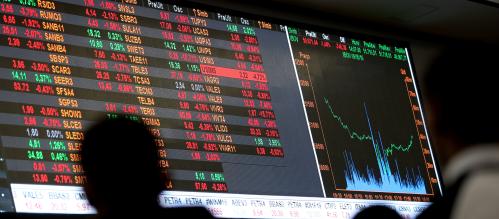
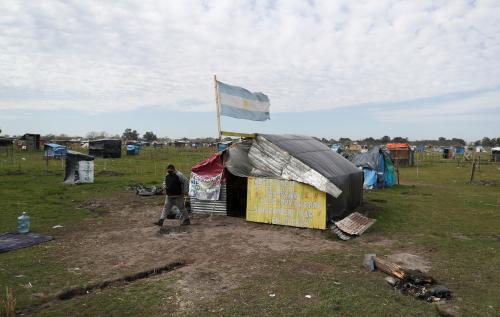
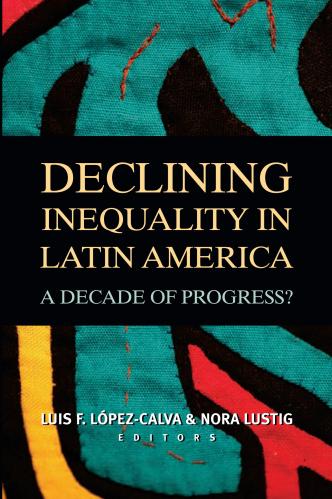
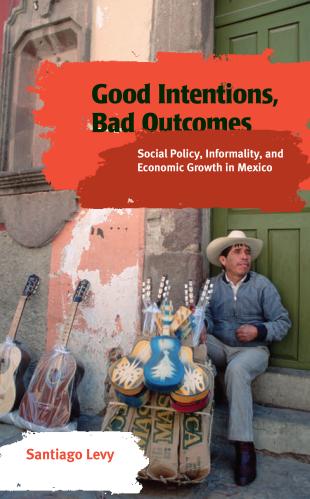
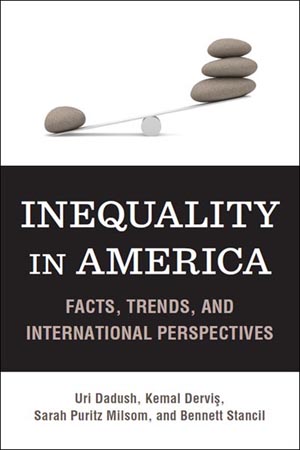




Commentary
Op-edAmerica’s Argentina risk
September 30, 2019